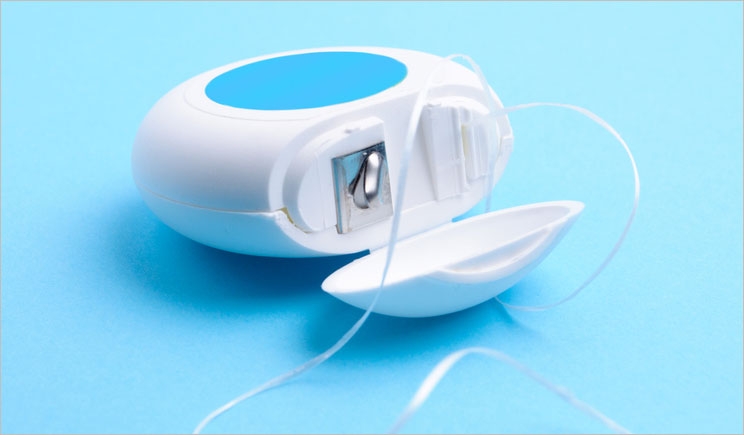
A recent study published by the Wiley Online Library says there is a possible relationship between the use of dental floss or superfloss and the development of peri-implantitis.
The research involved 10 patients with an intensive oral hygiene protocol that consisted of extensive supramucosal and submucosal cleaning. The patients who were not responding to this therapy were scheduled for examination. Plaque and bleeding indices and probing depth measurements were assessed, and radiographic examination was performed every two years.
In all 10 cases, remnants of dental floss were found around the neck and coronal part of a dental implant. After careful removal of the remnants and implant cleansing, the researchers noted a significant improvement in the peri-implant conditions in 9 of the 10 cases. In one case, peri-implant probing depth decreased substantially, though bleeding on the probing was still present.
In vitro testing demonstrated that the application of various types of dental floss on the exposed rough implant surfaces may easily lead to the tearing of floss fibers. This may result in the deposition of floss remnants on rough implant surfaces that, in turn, may lead to the development of plaque-related peri-implant inflammation and, subsequently, bone loss.
The researchers concluded that in the case of exposed rough surfaces of the dental implant, the peri-implant conditions may be jeopardized by the application of dental floss. Hence, the use of interproximal brushes or toothpicks may be preferred for daily home care practices.
The study was written by Frank J.J. van Velzen, Niklaus P. Lang, Engelbert A.J.M. Schulten, and Christiaan M. ten Bruggenkate. To download the full article, go to http://onlinelibrary.wiley.com/wol1/doi/10.1111/clr.12650/full.


